The ONLY Software Testing Course With
100% Placement Assistance | Live Online Sessions
Personalized Online Software Testing programs on Manual Functional, Automation, API & Database are taught by our expert trainers with over 12+ years of industry experience
Batch Starts Every Month
Our certification is in Affiliation with
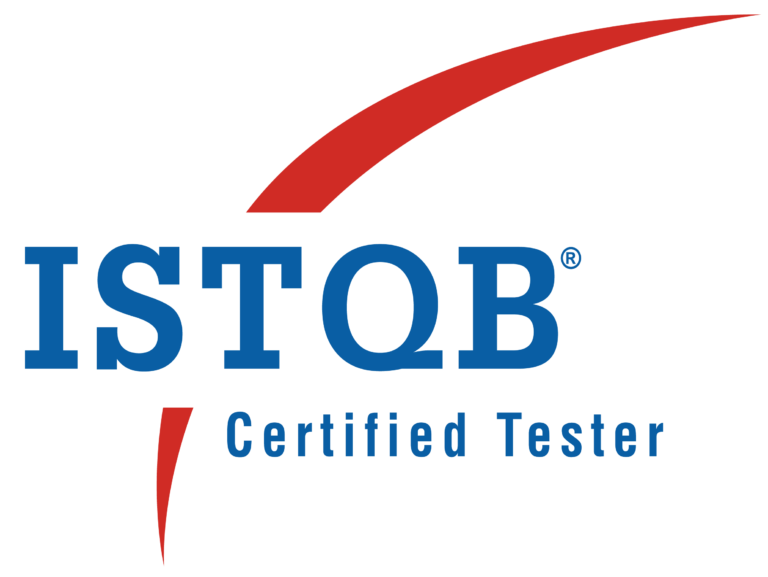
1000+
Students Trained
80 - 140 Hours
Course Duration
Every Month
Batch Start Date
1:5 – 2:00 Hrs
Session Duration
Key highlights of the course
- 100% Job Guarantee*
- Functional, Automation, API & DB Training
- 30+ Hours Of LIVE Sessions
- Certificate of Completion
- LIVE Projects & Tools
- Soft Skills Training
- Resume & Interview Training
- 0% EMI Option Available
Get familiar with our online software testing course syllabus.
Batch details
Manual Highlights
- For Non-IT & IT background students
- Hands-on Session every Weekday
- Doubt clearing sessions every week
- Access to real world tools
- 30+ hours of LIVE sessions
- 50+ hours of PRACTICAL sessions included
- Morning Session Time: 7:00 AM to 8:30 AM IST
- Evening Session Time: 7:00 PM to 8:30 PM IST
Automation (Selenium + Java) Highlights
- For Non-IT & IT background students
- Selenium & JAVA used in Automation Training
- Jenkins, TestNG, Cucumber, Appium
- Hands-on Session every Saturday
- 2 doubt clearing sessions every week
- 80+ hours of LIVE sessions
- 50+ hours of PRACTICAL sessions included
- Weekend Classes
Automation (Selenium + Python) Highlights
- For Non-IT & IT background students
- Selenium & Python used in Automation Training
- Jenkins, TestNG, Cucumber, Appium
- Hands-on Session every Saturday
- 2 doubt clearing sessions every week
- 80+ hours of LIVE sessions
- 60+ hours of PRACTICAL sessions included
- Weekend Classes
API (Manual + Automation) Highlights
- For Non-IT & IT background students
- Postman & REST & SOAP used in API Training
- Web services, HTTP Structure, XML and JSON, URI and URL
- Hands-on Session every Saturday
- 2 doubt clearing sessions every week
- 40+ hours of LIVE sessions
- 30+ hours of PRACTICAL sessions included
- Weekend Classes
Database Highlights
- For Non-IT & IT background students
- SQL used in Automation Training
- DBMS, RDBMS, DQL, DDL, DML, TCL & DCL
- Hands-on Session every Saturday
- 2 doubt clearing sessions every week
- 80+ hours of LIVE sessions
- 60+ hours of PRACTICAL sessions included
- Weekend Classes
Accessibility Highlights
- For Non-IT & IT background students
- JAWS, NVDA & TalkBack used in API Training
- WCAG 2, WCAG 3 & 508 Compliance
- Hands-on Session every Saturday
- 2 doubt clearing sessions every week
- 40+ hours of LIVE sessions
- 30+ hours of PRACTICAL sessions included
- Weekend Classes
Tools you’ll master







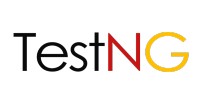

Video testimonials
Industry Recognized Certification from QAGENIC
By the end of this extensive online software testing course, you will be able to crack the ISTQB (Foundation Level) certification and receive a certificate of completion from QAGENIC.
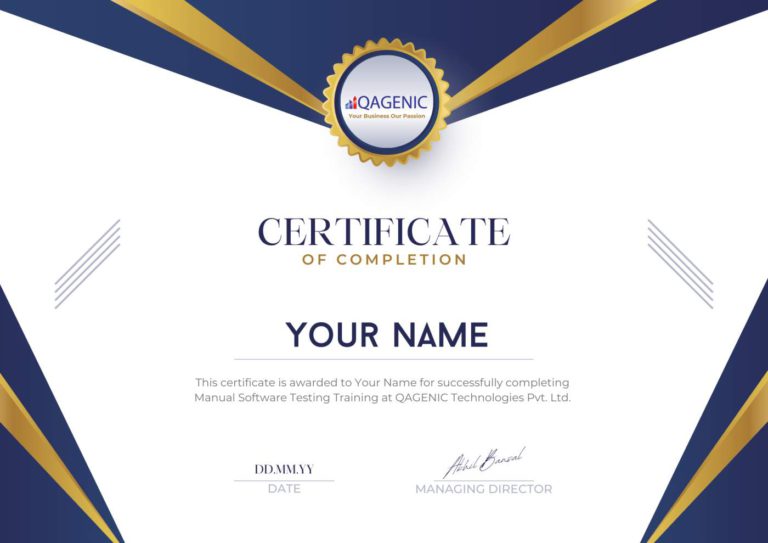
Get familiar with our online software testing course syllabus.
Manual Syllabus
The following topics in our syllabus are curated by subject-matter experts keeping in mind the industry requirements and expectations.
- What is a Software – Web Application and Mobile Application
- Client – Server Architecture
- What Is Software Testing
- What Is Software Quality
- Product Vs Project
- Importance of Software Testing
- Need of Software Testing
- Quality Assurance Vs Quality Control
- Error, Defect & Failure
- Manual & Automation Testing
- Manual Testing Process
- Verification & Validation
- Software Testing Myths
- Is Complete Testing Possible
- Qualities of a Good Tester
- What Is SDLC?
- SDLC Phases
- Requirement Analysis
- Feasibility Study
- Design
- Coding
- Testing
- Maintenance
- Popular SDLC Models
- Agile Overview
- Dev, Test, UAT, Pre-Prod, Prod Environments
- Branching & Versioning
- What is a code build
- Build deployment
- Functional Vs Non-Functional
- Functional
- Unit Testing
- Integration Testing
- System Testing
- Ad-hoc Testing
- Regression Testing
- Re-Testing
- Smoke Testing
- Sanity Testing
- User Acceptance Testing (UAT)
- Non-Functional
- Performance Testing
- Capacity Testing
- Load Testing
- Volume Testing
- Stress Testing
- Soak Testing
- Usability Testing
- Reliability Testing
- Security Testing
- Accessibility Testing
- Performance Testing
- Static Testing
- Dynamic Testing
- White Box Testing
- Path Testing
- Line Coverage
- Branch Coverage
- Condition Coverage
- Black Box Testing
- Boundary Value Analysis
- Equivalence Partitioning
- Race Conditions
- Error Guessing
- STLC Phases
- Requirement Phase Testing
- Test Planning
- Test Case Development
- Test Environment Setup
- Test Execution
- Test Cycle Closure
- Business Requirements
- Product Requirements
- Understanding Requirements
- Functional
- Non-Functional
- Requirement – Good Characteristics
- Review & Base Lining
- Requirement Review Form
- Benefits
- Requirements Traceability
- Use Cases
- Use Case Analysis
- Requirement And Use Cases
- Actor And Use Cases
- Objectives Of Use Cases
- Components Of Use Case
- Sample Use Case Document
- User Stories
- Difference Between User Story and Use Case
- Benefits of a User Story
- Test Plan
- Objectives of Test Planning
- Components of a Test Plan
- A Sample Test Plan
- Test Estimation
- What is an Estimate
- Factors Affecting Test Estimation
- Estimation Process
- Traditional
- Agile/Playing Poker
- Steps To Estimate
- Example
- Definition of a Test Case
- Objectives of Test Case
- Methods of Testing
- Formal
- Informal
- Types of Test Cases
- Requirement Based Test Cases
- Scenario Based Test Cases
- Test Case Attributes
- How to write test cases in an excel sheet
- Test Case Management Tool
- How to write test cases in a test case management tool
- Techniques To Generate Test Cases
- Test Case Review
- Defect Management
- Discovery
- Categorization
- Resolution
- Verification
- Closure
- Reporting
- Bug Reporting
- Definition And Components of a Bug
- Key Points to A Good Bug Report
- Severity Vs Priority
- How to write a bug report
- Bug Life Cycle
- Bug Logging Guidelines
- How to log a bug in JIRA
- Bug Reporting Exercise
- Agile Vs Waterfall
- Agile Methodology
- Agile Values
- 12 Agile Principles
- Agile Implementation
- Process Flow of Scrum
- Scrum Roles
- Scrum Board
- Epic And User Story
- Burndown Chart
- Extreme Programming
- Feature Driven Development
- Test Driven Development (TDD)
- Behavior Driven Development (BDD)
- Live Demo of Scrum and Kanban Boards
- Role of Test Engineer in Agile
- What Is An API?
- API – Logic Layer
- API Vs Web Services
- Types of Web Services
- Rest API Methods
- Content Type
- Example of Restful API
- Why API Testing
- API Testing Tools
- Requirement For API Testing
- Postman – Live Demo
- What Are Mobile Applications
- Types of Mobile Apps
- Web Application
- Native Application
- Hybrid Application
- Difference Between Mobile Apps
- Build Installation
- How To Do Mobile Application Testing
- Emulators And Real Device
- Bug Reporting Etiquettes for Mobile Apps
- Checklists
- What Is Content
- Types of Content
- What Is Content Testing
- How Content Testing Is Done
- Different Forms of Content Testing
- Checklist
- Device Dependencies
- General Issues
- Web Usability and Accessibility
- Need For Accessibility Evaluation
- Assistive Technology
- Assistive Tools
- Accessibility Guidelines
- Guidelines Under 508 Compliance
- Accessibility Process
- Manual Evaluation
- Assistive Technology for Visually Impaired Persons
- Need And Purpose
- Definitions- G11n, I18n And L10n
- Difference Between G11n, I18n And L10n
- Unicode
- G11n Testing Approach for Global Products
- Internationalization Testing
- Enablement Testing
- Localizability Testing
- Localization Testing
- Functional Testing
- Linguistic Testing
- Need And Purpose
- Definitions- G11n, I18n And L10n
- Difference Between G11n, I18n And L10n
- Unicode
- G11n Testing Approach for Global Products
- Internationalization Testing
- Enablement Testing
- Localizability Testing
- Localization Testing
- Functional Testing
- Linguistic Testing
- What Is Domain Testing
- Why Testing Domain Knowledge Matters?
- Understanding Travel Domain
- Items To Look Out for Testing
- Understanding Telecom Domain
- Items To Look Out for Testing
- Why We Need Metrics?
- Types Of Metrics?
- OS/ Browser Compatibility Matrix
- DRE (Defect Resolution Effectiveness)
- Test Case Execution Burn Down Chart
- Test Case Defect Density/ Test Case Efficiency or Test Efficiency
- Test Effectiveness
- Agile Burndown and Burnup charts
- Test Execution Report
- Concrete Exit Criteria
- Test Cases Report
- Defect Rate
- Residual Risks
- Test Analysis
- Examples “Everyday” Usability Problems
- What Is Usability?
- Factors That Affect Usability
- Why Should You Care About Usability?
- What Is Usability Testing?
- Methods Of Usability Testing
- Usability Checklist
- Why Automation
- Test Automation Pyramid
- What To Automate & When to Automate?
- Automation Tools
- Selenium As an Automation Solution
- Supporting Tools
- Automation Limitation
- Test Engineer
- Senior Test Engineer
- QA Lead
- QA Manager
- Senior QA Manager
- Director Quality Assurance
Download
Detailed Course Syllabus
Automation (Selenium + Java) Syllabus
The following topics in our syllabus are curated by subject-matter experts keeping in mind the industry requirements and expectations.
- What is Automation Testing
- Various Automation Testing tools
- What to automate and when to automate
- Relevance of automation in Agile development methodology
- Practical automation using Selenium IDE
- Installation
- Record and Playback using Selenium IDE
- Executing first Automation scripts
- Various commands
- Building locators
- Running Test and Test Suites
- Basics of web technologies front end
- HTML css and javascript
- Why need programming for Automation
- Java and JDK installation and validation
- Using programming IDE – Eclips
- How to start on first programs
- Hello world program and dissection
- Basic Data Types
- Conditions and Loops
- If and If-Else
- While loop
- Operators
- Switch Case
- For-Loops
- Coding best practices
- Java code structure
- OOP concepts
- Theoritical
- polymorphism, encapsulation and inheritance
- Classes and Objects
- Constructers
- Super keywords
- Getters and Setters
- Basics of collection
- Writing first selenium automation code
- Exporting tests from Selenium IDE
- Exceptions and Try-Catch
- What is unit testing and why it is important for automation
- Introduction to JUnit
- JUnit annotations
– JUnit Assertions
– Selenium tests with JUnit
- Installation
- Maven Lifecycles
- Managing dependencies
- Revisit Selenium and Junit with Maven
- Introduction to TDD (Test Driven Development)
- Introduction to TestNG
- Why TestNG
- TestNG Annotations
- TestNG Assertions
- Revisiting Selenium with TestNG
- Debugging a Java Code
- How to read stacktrace
- Using debugger
- Introduction to Selenium Page object Model
- Introduction to frameworkIntroduction to framework
- Introduction to Version Control System
- Create github account
- Code clone, commit and push
- CI / CD concepts
- How to host and configure Jenkins
- Distributed and parallel execution of tests
- Reporting
- Allure and Extent reports
- Taking Screenshot
- Introduction to BDD / Cucumber
- Introduction to serenity framework
Download
Detailed Course Syllabus
Automation (Selenium + Python) Syllabus
The following topics in our syllabus are curated by subject-matter experts keeping in mind the industry requirements and expectations.
- Development environment setup
- Baby-step script in python
- Object Oriented Programming
- Test Case convention in python
- Assertions
- Python test scaffolds
- Creating Tests for a Code Game
- Selenium basics
- First Selenium Tests in python
- Selenium basics
- Raw Script for web scraping automation
- POM Basics
- DSL design pattern
- HTTP and Rest Clients
- API Testing for a Web Game
- Appium Introduction
- Setting up Android Application Test Environment
- First Mobile App Test
- Problem examples with solutions
- Robot Framework
- Behave
Download
Detailed Course Syllabus
API (Manual & Automation) Syllabus
The following topics in our syllabus are curated by subject-matter experts keeping in mind the industry requirements and expectations.
- Client-Server Architecture
- Presentation, Business and Database layers
- HTTP Structure
- XML and JSON->an overview
- URI and URL
- Benefits of API Testing
- Types of API Testing”
- Difference between API testing and Unit testing
- Tools for Web Services API Testing
- Approach of Web Services API Testing
- Challenges of Web Services API Testing
- What to test for in API testing
- Common API errors
- HTTP methods
- Status codes
- Introduction to POSTMAN tool and installation
- Creating requests in Postman
- Creating collections in Postman
- Understanding variables and environments in Postman
- Authorization in POSTMAN
- Introduction to JAVA
- Assertions/Test scripts in POSTMAN
- Command line integration with Newman
- Introduction to REST Web services
- Difference between SOAP and REST Web services
- POST, PUT and PATCH Request using Rest Assured
- Authentication and Authorization in REST Web Services
- Sample automation framework design using REST ASSURED
- What is REST?
- Rest Architectural Elements
- REST ASSURED – Basics
- Configure Eclipse with Rest-Assured
- REST API Test using Rest Assured
- Validate Response Status using Rest Assured
- Validate Response Header using Rest Assured
- Read JSON Response Body using Rest Assured
- SOAP UI /READY API BASICS and installation
- Create a Project, Test Suite, Test Case
- Assertions
Download
Detailed Course Syllabus
Database Syllabus
The following topics in our syllabus are curated by subject-matter experts keeping in mind the industry requirements and expectations.
- What Is Database?
- What is Database Management System (DBMS)?
- What is Relational Model ?
- Datatypes and Constraints
- Statements in SQL
- Software installation
- Data Query Language (DQL)
- Operators
- Functions in SQL
- Sub Query
- Pseudo Columns
- JOINS
- Co- Related Sub Query
- Data Definition Language (DDL)
- Data Manipulation Language (DML)
- Transaction Control Language (TCL)
- Data Control Language (DCL)
- Normalization
- E-R Diagrams
Download
Detailed Course Syllabus
Accessibility Syllabus
The following topics in our syllabus are curated by subject-matter experts keeping in mind the industry requirements and expectations.
- Need of A11Y testing
- Difference between Usability and Web A11Y
- Types of Accessibility Testing
- Web A11Y & Document A11Y
- Section 508
- WCAG 2.1
- ADA
- GIGW
- Tools & Techniques of Web A11Y
- VoiceOver
- JAWS
- NVDA
- Win Magnifier
- Win Narrator
- CCA
- aXe tool
- Wave Accessibility Toolbar
- VPAT report
- Statistics report
- A11Y test report (ATR)
- Techniques of Document A11Y testing
- Tagging
- Regularity test
- Tab order
- Alt text, etc.
- Remediation techniques and methods
- Conclusion
- Practical working session
Download
Detailed Course Syllabus
Our learners work at
Reputed organizations and brands across the globe have recruited QAGENIC Alumni.








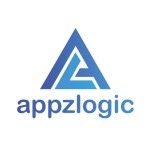
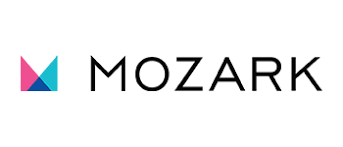
Start your online software testing training with industry experts.
Learning methodology
Every Saturday QAGENIC hosts live super sessions with CMO’s of top companies and heavyweights of the advertising industry.
Multiple domains & verticals:

- Get an exposure of working on the projects from various domains and verticals.
- Mobile and Handheld Devices
- BFSI
- Telecom
- eLearning
- Travel
- Localization
- eCommerce & Retail
24×7 query handling:

- A WhatsApp group is created and each student is added into it. You can use this group to post any query or questions that you may come across while doing self study post session. Our trainers would answer your questions then and there in the group.
Role Play Exercises:

- Excercises like Role play and corporate project team communication and etiquettes makes you ready for the Industry. These exercises simulate the situations that often arise in a project, these mock exercises prepare you well in advance to handle such situations smartly and gracefully when you actually face them.
Start with Video Lectures:

- Online sessions with real time Trainer and mentor interaction
- In-session practice worksheets and activities
- Daily Home Assignments
- Evaluation tests for validating percentage of knowledge perceived by each candidate
Work on Tools:

- Exposure to different project and process management tools that are being used by majority of IT Organizations out there. You will be given access to these tools and you can continue to practice 24×7
Get familiar with our online software testing course syllabus.
Knowledgenic Student Testimonials
I have been building a portfolio in software testing to gain good experience, and I think this online course is a great start! I have learned a lot about the various types of testing, software testing methods, test processes, user documentation, and team working. The practical exercises in both manual and automated testing sharpened my skills – it is definitely an advantage to get hands-on training on Selenium as well as other test tools.
Sayali
Sr. Accessibility Engineer, Johnson & Johnson
Tests coded in KNOWLEDGENIC Manual Software Testing have enabled us to find bugs that otherwise would not have been found–bugs that are now fixed and have resulted in a higher quality, more reliable product. From the moment I learned about it, I have been amazed at what KNOWLEDGENIC has to offer. It takes bug tracking to a whole new level!
Tanvi Aggarwal
Sr. Business Analyst & QA , Hollard
I’ve used my QA skills at every job I’ve ever had. I tested software to make sure that it works and is bug-free. With a technical background, I know how to test code which makes my testing so much easier. It all came from the Manual Software Testing program with a solid foundation in software testing, that I took from KNOWLEDGENIC..
Praful Saxena
QA Engineer, PayTM
It feels like I have been in software testing for years after completing Automation course from KNOWLEDGENIC. With hands on experience over multiple domains and on different kinds of products, I have a better understanding of the functional flow involved in each product and understand what needs to be tested and why it should be tested. I have been able to recognize the consequences of inadequate testing and the troubleshooting that occurs once there are bugs..
Pratiksha
Sr. QA Engineer, Virgin Mobile
My experience with the Automation Software Testing Specialization was exceptionally positive. I found it extremely engaging and enjoyed all of the content, especially the technical information on building test scripts using Selenium. The content was very timely and informative given current topics...
Dipti
UI/UX Tester, Turns
Connect with testers from around the world with KNOWLEDGENIC! Put skills you’ve learned in front-end and back-end software testing, Android, iOS, data analysis, and more around web testing, and build your technical portfolio in active QA community. With new project challenges posted on a weekly basis, you’ll have opportunities to earn KNOWLEDGENIC rewards, network with fellow students, mentors, and alumni and expand your professional portfolio.
Surinder Singh
QA Engineer, LDT Technologies
What's Included
Features/Benefits
- 60+ hours of Live Learning
- In Session activities
- Daily assignments
- 24x7 doubt clearing on WhatsApp group
- Post training evaluation test
- Major Industry Tools Mastery
- 100% Placement Guarantee\Assurance
- Resume & Interview Training
- Work on live projects
- 0% EMI Option Available
I’m Interested in this programme
Frequently Asked Questions
Here are some of the most popular queries on Online Automation Testing Course.
If you have any questions while going through the Course Handbook after the LIVE sessions, you can post your question(s) on the WhatsApp group. All the questions posted by you will be answered by the trainers right away.
Yes, you can view our demo class on YouTube. Also you can attend three LIVE demo sessions that you can attend before enrolling into the course.
Yes. A laptop with i3 and above processor is mandatory to attend the live automation testing sessions seamlessly. However, for manual testing sessions it is definitely recommended to attend using a laptop but you can also attend using a mobile devices.
There will be at least 3 live sessions in a week that will amount to 60+ live hours of training.
All of our instructors have at least 12 years of industry experience and they are the masters in the world of software testing. They have years of experience in training students and thus bring in that experience to the sessions.
We recommend that you try your best to attend the LIVE sessions on all the scheduled days, if you sign up to learn. Alternatively, if you still can’t make to the LIVE session on a given day then we will provide you link to watch the recorded LIVE Session.
We have strategically designed ‘Doubt Clearning’ sessions during the course of the program where you can bring up your doubts from any of the LIVE sessions that have been completed so far.
Yes, you will have access to the WhatsApp group for lifetime. However, after the course is completed you will be moved to an Alumni WhatsApp group. We recommend that learnings should never stop and as you continue your learnings, our industry experts are always there to help you.
All of our software testing courses have been designed in a way that focues more on the practical aspects and we provide you access to a number of tools through which you will get hands-on training.
Yes, you can choose any specific courses to learn. You can learn more about this here.
Manual
15,000
Course Duration: 1 Month
Class Duration: 1.5-2 Hours Per Session (Mon-Fri)
Learning Mode: Online
LIVE Project: Yes
Selenium + Python
25,000
Course Duration: 2 Months
Class Duration: 2-3 Hours Per Session (Sat-Sun)
Learning Mode: Online
LIVE Project: Yes
Selenium + Java
25,000
Course Duration: 2 Months
Class Duration: 1.5-2 Hours Per Session (Mon-Fri)
Learning Mode: Online
LIVE Project: Yes
API (Manual + Automation)
15,000
Course Duration: 2 Months
Class Duration: 1.5-2 Hours Per Session (Mon-Fri)
Learning Mode: Online
LIVE Project: Yes
Database
10,000
Course Duration: 1 Month
Class Duration: 2-3 Hours Per Session (Sat-Sun)
Learning Mode: Online
LIVE Project: Yes
Accessibility
10,000
Course Duration: 1 Month
Class Duration: 2-3 Hours Per Session (Sat-Sun)
Learning Mode: Online
LIVE Project: Yes
